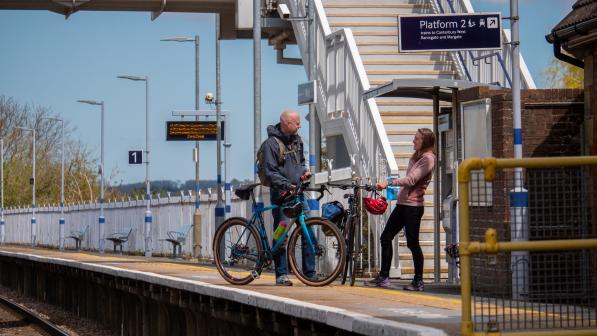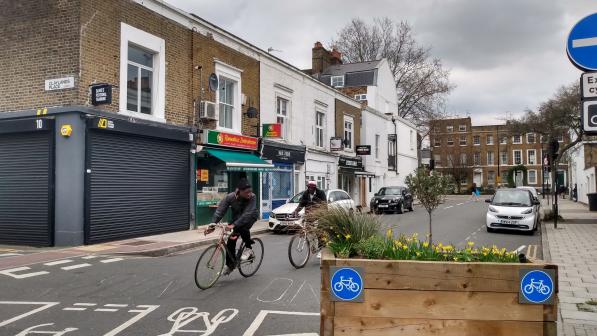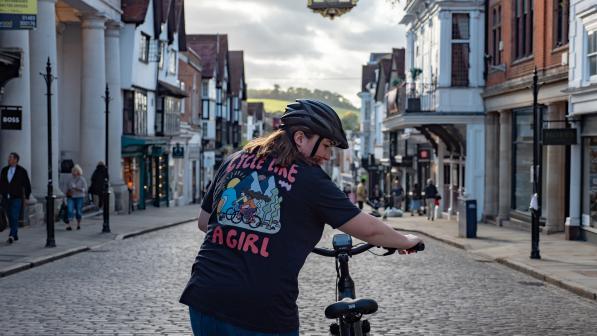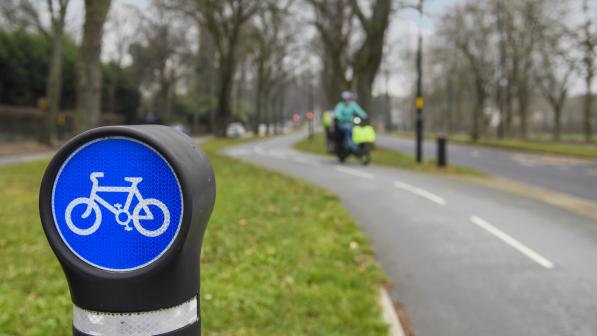Peers vote for climate-friendly planning laws

The Lords are currently in rebellious mood.
Before they went away for their summer breaks, they inflicted 15 defeats on the government’s Retained EU Law Bill – crucially, including one which retains the principles of EU environmental protection laws (on air quality, for example). Having now returned from their holidays, they are creating similar difficulties for the government as it tries to get its equally huge and controversial Levelling Up and Regeneration Bill (LURB) passed.
The government could try to use its built-in majority in the Commons to try and reverse these defeats. However, the Lords are unlikely to back down easily. Ministers are likely to have to make some concessions if they want to get both bills through Parliament, before it rises for ahead of the King’s Speech on 7 November.
They aren’t helped by the fact that Parliament will soon be taking another three-week break for the party conference season. They simply don’t have time for a lot of parliamentary ‘ping-pong’: getting both Houses to agree on what amendments should be made to these and other controversial bills that they want to get passed.
Climate amendment: success!
The good news is that one of the LURB amendments passed by the Lords, despite government opposition, will require national and local government to “have special regard” to climate considerations at every stage in the planning system, from national policy-making to decisions on specific new developments.
It is one of several amendments that Cycling UK and its partners in the Better Planning Coalition (BPC) have worked hard to get into the bill. It would help to ensure that new developments are located and designed to prevent or avoid the risks of flooding, promote energy efficiency, use green building materials, support the protection and regeneration of woodlands and – crucially from Cycling UK’s perspective – avoid entrenching car dependence.
Health inequalities and wellbeing amendment: narrow defeat
Another BPC-backed amendment similarly sought to embed health and wellbeing considerations into all stages of the planning system. It would specifically require consideration of walking and cycling networks.
This will ensure that homes were within easy walking distance of key destinations such as schools, shops, healthcare and public transport (the principle of ‘20-minute neighbourhoods’ or ‘15-minute cities’). It would also provide for healthy homes and ensure good access to green open space.
Unfortunately it fell short of being passed by just two votes. It nonetheless gained strong support from all sides of the House.
Peers speaking in favour of it included Lord Crisp (a cross-bencher and a former CEO of the NHS), the Bishop of Southwark, Lord Lucas (Con), Baroness Bennett of Manor Castle (Green), Lord Stunnell (Lib Dem), Lord Hunt of Kings Heath and Baroness Blackstone (Labour backbench) and Baroness Hayman of Ullock (Labour front bench).
Baroness Willis of Summertown (CB) and Lord Foster of Bath (LD) had also put their names to it but were unable to be there on the day.
On behalf of Cycling UK and our allies, I want to thank them all for their support.
The same goes for those who spoke in favour of the successful climate amendment: Lord Ravensdale and Baroness Hayman (cross-bench), Lord Deben (Con, a former environment secretary and, until recently, chair of the government-appointed Climate Change Committee), Lord Lansley (also a former Conservative minister), Baroness Pinnock (Lib Dem front bench) and Baroness Hayman of Ullock (Labour front bench), as well as support in absentia from Lord Teverson (Lib Dem).
The good news is that the Lords did support a ‘healthy homes and communities’ amendment, which would require the adoption of a set of ‘healthy homes principles’, including a principle that “all new homes should be built within places that prioritise and provide access to sustainable transport and walkable services, including green infrastructure and play space.”
It is sufficiently similar to the BPC’s original health and wellbeing amendment that we will be happy to support it when the Bill returns to the Commons.
Walking, cycling and rights of way networks: a useful ministerial promise
A special vote of thanks goes also to Lord Berkeley (Lab) and Lord Young of Cookham (Con) for supporting an amendment drafted by the Walking and Cycling Alliance, and backed by the Better Planning Coalition.
I have previously explained why local walking cycling and rights of way network plans need to be written into the development plans which councils use to decide what types of development can or cannot go ahead in different locations.
Our amendment would have helped ensure that new developments included space and/or funding to provide good cycling and walking provision, while preventing potentially useful routes (such as disused railway lines) from being blocked by those developments.
Lord Berkeley and Lord Young of Cookham both made excellent speeches supporting this amendment when it was first debated back in April.
Anticipating (correctly) that the government would try to argue that our concerns could be addressed through planning policy (rather than through legislation) Lord Young highlighted some very similar policy which the government had adopted when he was a planning minister 29 years ago – and which clearly hasn’t worked!
Lord Young’s speech yesterday (6 September 2023) reiterated this point, as well as echoing Cycling UK’s concerns about one particular paragraph in the government’s current National Planning Policy Framework (NPPF), which undermines all the other fine words about supporting cycling, walking and other forms of sustainable transport.
Unfortunately the government was still not persuaded. Yet the minister (Baroness Scott of Bybrook) did promise that the next revision of NPPF will include considering “how best to provide for walking and cycling”. We look forward to engaging on this when the time comes.
Be ready to take action...
Meanwhile, our immediate priority is to make sure that the government doesn’t try to remove the climate amendment when the bill returns to the Commons. Given the timing pressures I explained earlier, it is entirely possible that the government will see sense on this. But please be ready to take action – we may need to ask you to contact your MPs to prevent them trying to take it out again!



